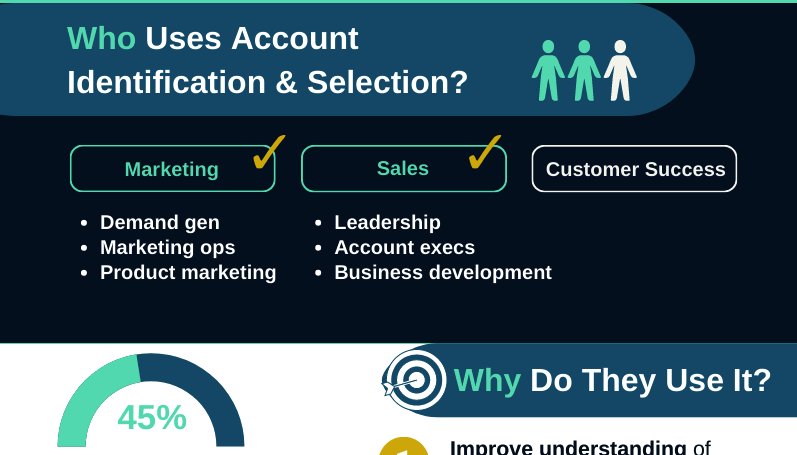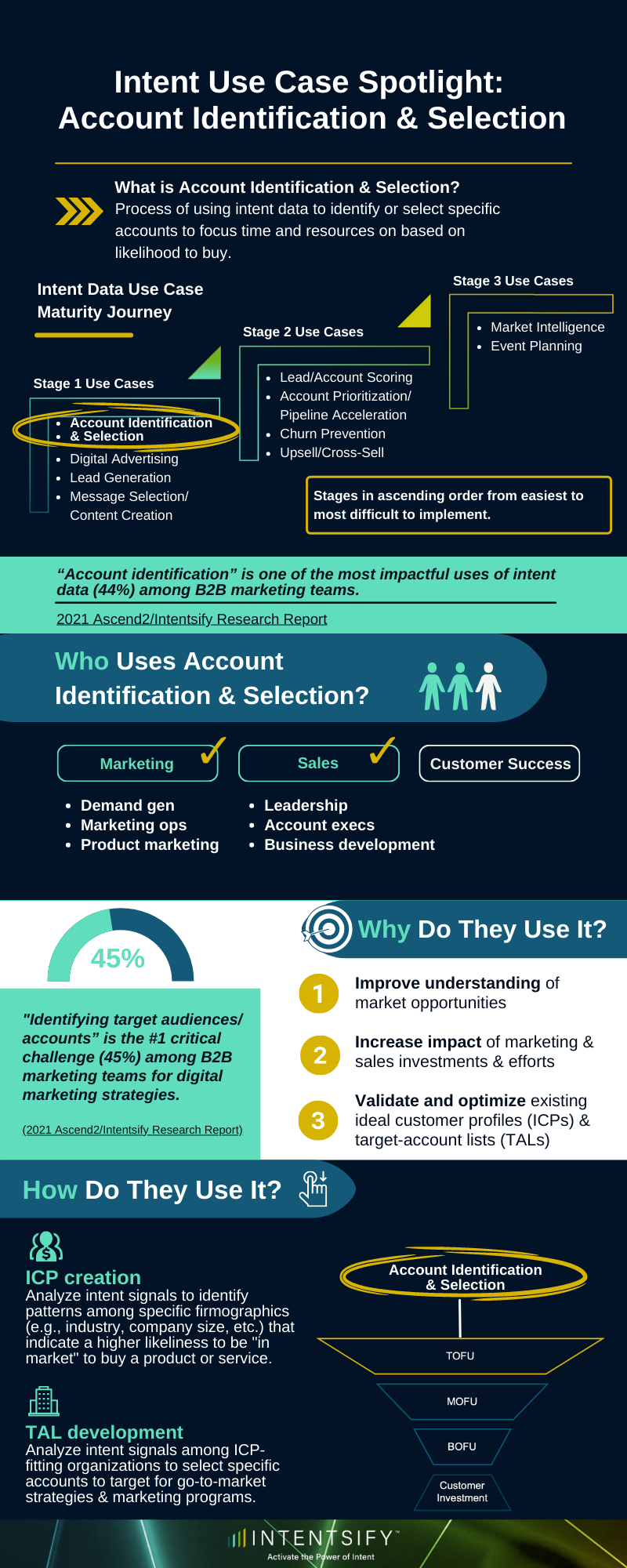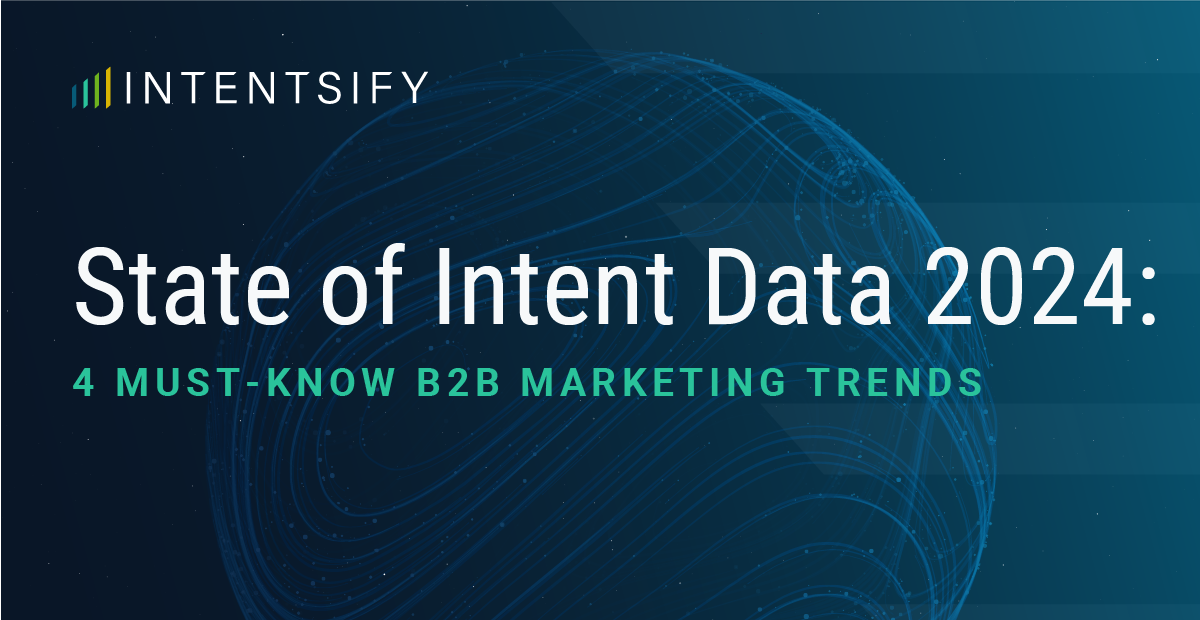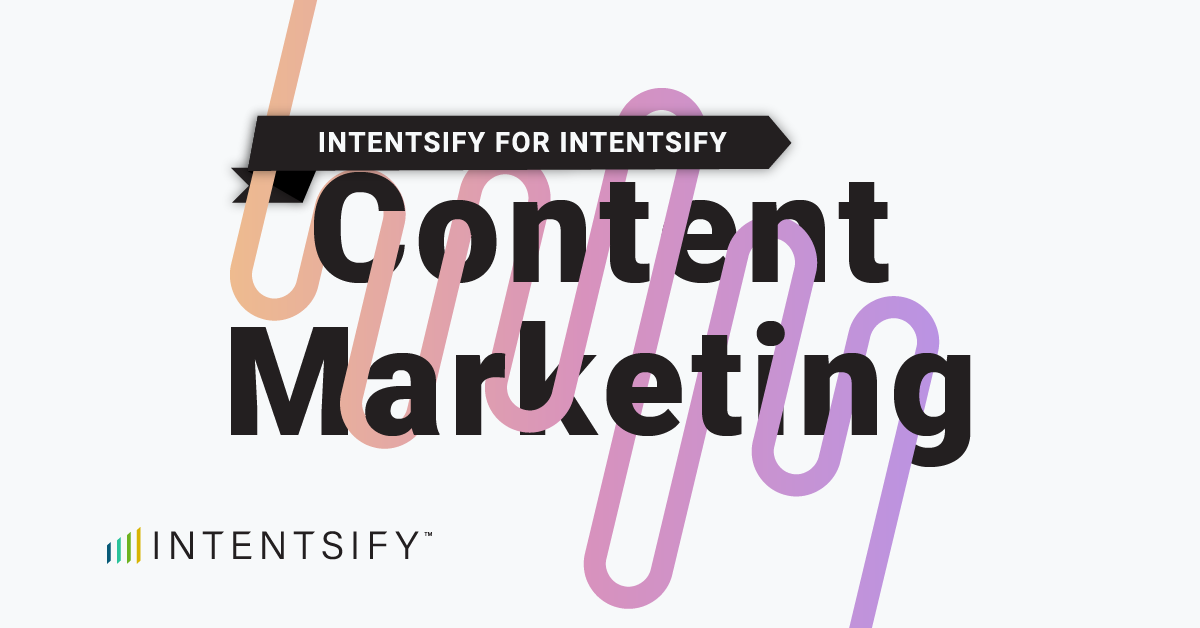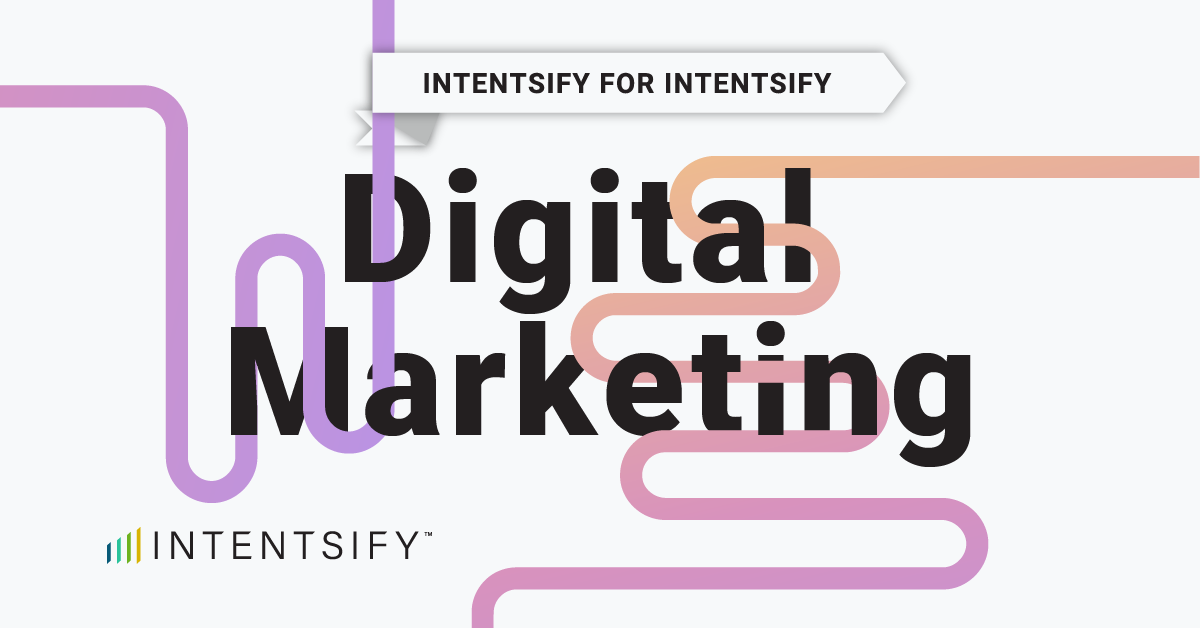Account-based marketing (ABM) has been in the B2B marketing mainstream for a while now. No need to provide a stat on its proliferation—we all know it’s important. When properly developed and implemented, account-based strategies help organizations focus their time, budget, and efforts on the accounts most likely to convert into opportunities, customers, and revenue.
Such efficiency is incredibly valuable. But first, marketers must accurately identify which companies to focus on—as well as when and how to engage them. Intent data greatly helps with all of this. By providing a view into which accounts are actively researching challenges, solutions, brands, and products related to your organization, intent data can support many use cases throughout the buyer’s journey.
That said, one of the easiest and most impactful intent data use cases is “Account Identification & Selection.” This includes using intent insights to:
- Identify (or hone) your ideal-customer profile (ICP) as well as which specific accounts should be on your target-account list (TAL); and
- Select which of those accounts to focus on at any given time based on recent online research activities.
In this new infographic series, we’ll highlight ten different intent data use cases, starting here with “Account Identification & Selection.” Each infographic covers the main values of an individual use case, as well as how marketers, sellers, and customer success reps can leverage it to improve the impact of their efforts.
For a deep dive into how organizations can use intent data to identify and select target accounts check out the blog Account Identification and Selection.

